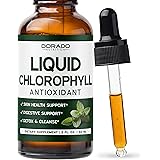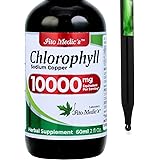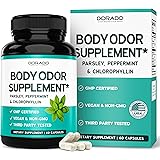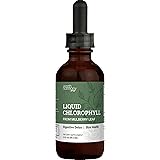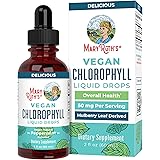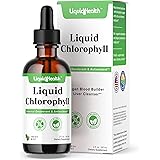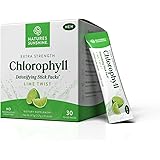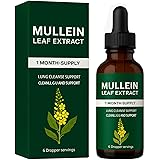Have you ever considered what profound changes might occur in your body if alcohol consumption were to be paused for just two weeks? The video above offers a compelling glimpse into the immediate benefits of stopping alcohol for 14 days, particularly regarding liver health. As explored by health experts, the liver is an incredibly resilient organ, and even a short period of abstinence can initiate a remarkable repair process.
The Remarkable Resilience of Your Liver
The liver is often regarded as the body’s primary detoxification center, tirelessly filtering toxins and waste products. However, its functions extend far beyond simply processing harmful substances. This vital organ is involved in hundreds of essential bodily processes, from metabolism to hormone regulation.
Alcohol places a significant burden on the liver, forcing it to prioritize the breakdown of alcohol over its other crucial roles. Fortunately, the liver possesses an extraordinary capacity for regeneration. Even after years of alcohol exposure, considerable improvements can be observed within a relatively short timeframe once alcohol intake ceases.
Reduced Inflammation and Fat Accumulation
One of the most immediate effects of alcohol on the liver is inflammation, known as alcoholic hepatitis, and the accumulation of fat, leading to alcoholic fatty liver disease. When alcohol is metabolized, it produces byproducts that are toxic to liver cells, triggering an inflammatory response.
During a 14-day alcohol-free period, this inflammation is significantly reduced. The liver is given the opportunity to heal, and the process of fat accumulation can be reversed. For example, individuals with mild fatty liver disease may find their liver cells beginning to shed excess fat, moving towards a healthier state.
Lessening Scar Tissue Formation
Chronic inflammation and fat accumulation, if left unchecked, can lead to more severe conditions like fibrosis and cirrhosis, where healthy liver tissue is replaced by scar tissue. Scar tissue, unlike healthy tissue, cannot perform the liver’s vital functions.
While reversing advanced cirrhosis may not be possible in two weeks, the cessation of alcohol consumption during this period can halt the progression of scar tissue formation. This break allows the liver to focus on healing existing damage and prevents further injury, offering a crucial window for repair and potentially preventing long-term complications.
Beyond Detoxification: The Liver’s Crucial Hormonal Role
Beyond its well-known detoxification capabilities, the liver plays a pivotal role in the body’s endocrine system, particularly concerning hormone regulation. This aspect of liver function is often underestimated but is profoundly impacted by alcohol consumption.
Disruptions in these hormonal processes can lead to a cascade of negative health effects. By giving the liver a break from alcohol, its capacity to manage these delicate hormonal balances is significantly restored, leading to numerous systemic improvements.
Activating Growth Hormone for Fat Burning and Beyond
The liver is instrumental in activating growth hormone, which is correctly identified in the video as a primary fat-burning hormone. Growth hormone is actually released from the pituitary gland, but its conversion into insulin-like growth factor 1 (IGF-1) by the liver is what primarily mediates many of its growth-promoting and metabolic effects.
When the liver is burdened by alcohol, this conversion process is hindered. Improved liver function, achieved through alcohol abstinence, allows for more efficient activation of growth hormone. This not only supports fat metabolism but also aids in muscle repair, cellular regeneration, and overall bodily upkeep, contributing to a more youthful and energetic feeling.
Converting Thyroid Hormones for Optimal Metabolism
The liver is crucial for converting inactive thyroid hormone (T4) into its active form (T3). This conversion is essential for maintaining a healthy metabolism, energy levels, and body temperature. Alcohol has been shown to impair this conversion, leading to sub-optimal thyroid function even in individuals without a formal thyroid disorder.
When alcohol is removed from the system, the liver’s ability to perform this conversion is improved. As a result, metabolic functions can become more efficient, leading to better energy regulation, potential improvements in weight management, and a greater sense of vitality. This improved thyroid health is a key, yet often overlooked, benefit of alcohol abstinence.
Blood Production and Essential Proteins
Another fundamental role of the liver is the production of various blood components and proteins critical for overall health. It synthesizes plasma proteins, such as albumin, which helps maintain fluid balance in the blood, and clotting factors, which are essential for preventing excessive bleeding.
Alcohol can suppress the liver’s ability to produce these crucial proteins. During an alcohol-free period, the liver’s capacity to synthesize these vital components is restored, ensuring healthier blood composition and proper blood clotting function. This ensures that the body’s internal systems are operating smoothly and efficiently.
Broader Benefits of Stopping Alcohol for 14 Days
While the video focuses intensely on the liver’s remarkable recovery, the ripple effects of giving up alcohol for 14 days extend throughout the entire body. Many systemic improvements are noticed, often leading to a general feeling of enhanced well-being.
These widespread benefits are a testament to how interconnected our bodily systems are and how significantly alcohol can impact them. The two-week break allows the body to recalibrate and restore balance in numerous areas.
Enhanced Sleep Quality
Alcohol is often mistakenly used as a sleep aid, but it actually disrupts the sleep cycle, particularly REM sleep, which is crucial for cognitive function and memory consolidation. While alcohol might help you fall asleep faster, the quality of that sleep is significantly compromised.
During an alcohol-free period, sleep patterns often normalize. Deeper, more restorative sleep can be achieved, leading to increased daytime energy, improved focus, and a general feeling of being well-rested. This improvement in sleep is frequently cited as one of the most noticeable benefits.
Improved Mental Clarity and Mood
Alcohol is a depressant, and its regular consumption can negatively impact mood, increase anxiety, and reduce mental sharpness. It interferes with neurotransmitter balance in the brain, which affects everything from emotional regulation to decision-making.
Removing alcohol allows the brain’s chemistry to rebalance. Many individuals report feeling less anxious, more emotionally stable, and experiencing greater mental clarity and focus. The fog that can accompany regular alcohol intake is often lifted, leading to improved cognitive performance.
Better Hydration and Skin Health
Alcohol is a diuretic, meaning it increases urine production and can lead to dehydration. This dehydration is often reflected in the skin, which can appear dull, dry, and lacking elasticity. Alcohol can also exacerbate skin conditions like rosacea and acne.
Within 14 days of abstinence, the body’s hydration levels are typically restored. This improved hydration often leads to brighter, clearer, and more supple skin. Puffy eyes are reduced, and the overall complexion can appear healthier and more vibrant.
Supporting Gut Health and Digestion
Alcohol can irritate the digestive tract, disrupt the balance of gut bacteria, and impair nutrient absorption. This can lead to digestive issues such as bloating, discomfort, and altered bowel movements.
When alcohol is removed, the gut lining has a chance to heal, and the beneficial gut bacteria can begin to thrive again. Improved digestion, reduced bloating, and better nutrient absorption are common positive outcomes, contributing to overall health and immune function.
Making the 14-Day Alcohol-Free Commitment
The decision to commit to stopping alcohol for 14 days is a personal one, but the potential health benefits, as highlighted in the video and further explored here, are substantial. It is often seen as a simple, yet powerful, way to reset the body and re-evaluate one’s relationship with alcohol.
Consider starting with clear goals and perhaps identifying triggers to avoid. You might find it helpful to seek support from friends or family, or even try new alcohol-free alternatives. The improvements in liver health, hormonal balance, sleep, mood, and skin are often cumulative, creating a positive momentum that can inspire longer-term healthy habits. Giving your body this crucial break allows it to demonstrate its incredible capacity for self-repair and enhanced well-being.


